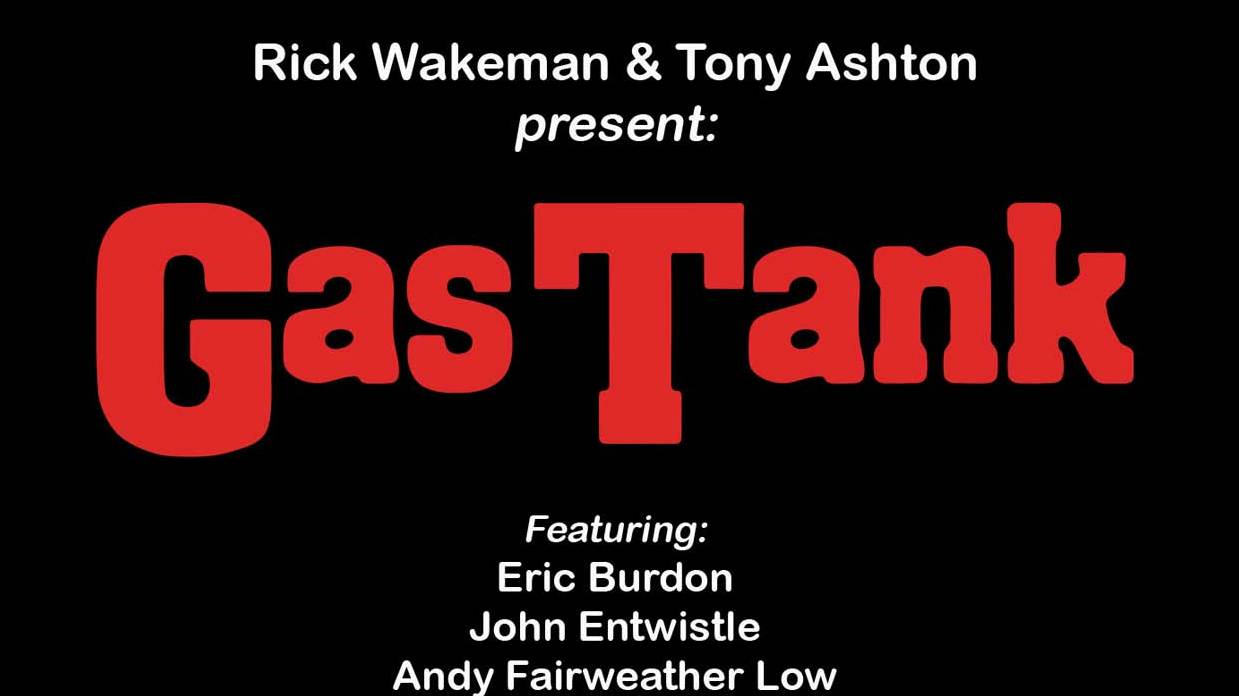In theory, GasTank was a fine idea for a TV series. Mock up a studio as a bar (well, didn’t all rockers drink heavily in those days?), get Rick Wakeman to interview some of the big rock names of the time while sitting in the bar, before he and collaborator Tony Ashton join their guests in a musical extravaganza. But in practice…
Some of this 1982 Channel 4 series works very well. However, other parts were misguided. To start with the negative aspects, the interviews done by Wakeman are stifled and stilted. It’s as if he’s intimidated by having to talk on camera to people he knew so well. Wakeman is clearly trying to avoid any controversial subjects, but in doing so these potentially fascinating chats can be reduced to being dull and no more than irritating interludes. It doesn’t help that the fag-smoke filled setting is about as convincing as 70s TV variety show, The Wheeltappers & Shunters Social Club. These days, Wakeman’s trademark irreverence and intelligence would ensure such interviews would be worth watching, but over 30 years ago, he was still finding his niche – of course some gems, such as Rick Parfitt, could never fail.
The real gold comes when the musicians get let loose. Wakeman and Ashton were both virtuosos and extremely versatile, which meant they could adapt to the style of any guests. As a result, some of the performances are stunning. Of special interest to prog fans will be the way Wakeman interacts with Steve Hackett. Their relationship is so natural and flowing that it’s a pity this wasn’t developed further. But equally as powerful in this situation are The Strawbs – Wakeman did have an advantage here of a long history with them – plus the way in which Godley & Creme, together with Andy Fairweather Low, take their chance. There’s also a brilliant track with jazz legend Ronnie Scott, which swells and grows mesmerically.
In this respect, GasTank offers a fine insight into the way in which top quality musicians of that era were prepared to put themselves into an unusual environment, challenging themselves to rise to the occasion. Without any exception, all of them proved equal to the task. Some, like Hackett, revelled in the opportunity and seemed fired by the idea of hurtling into what was effectively a musical maze. And when you listen to what these giants created, it was spellbinding, emphasising that Wakeman and Ashton were able to draw from these artists a freshness and hitherto hidden passion for all sorts of music.
Available on two-disc DVD and three-disc CD, GasTank’s strength is these one-off collaborations: the music.

